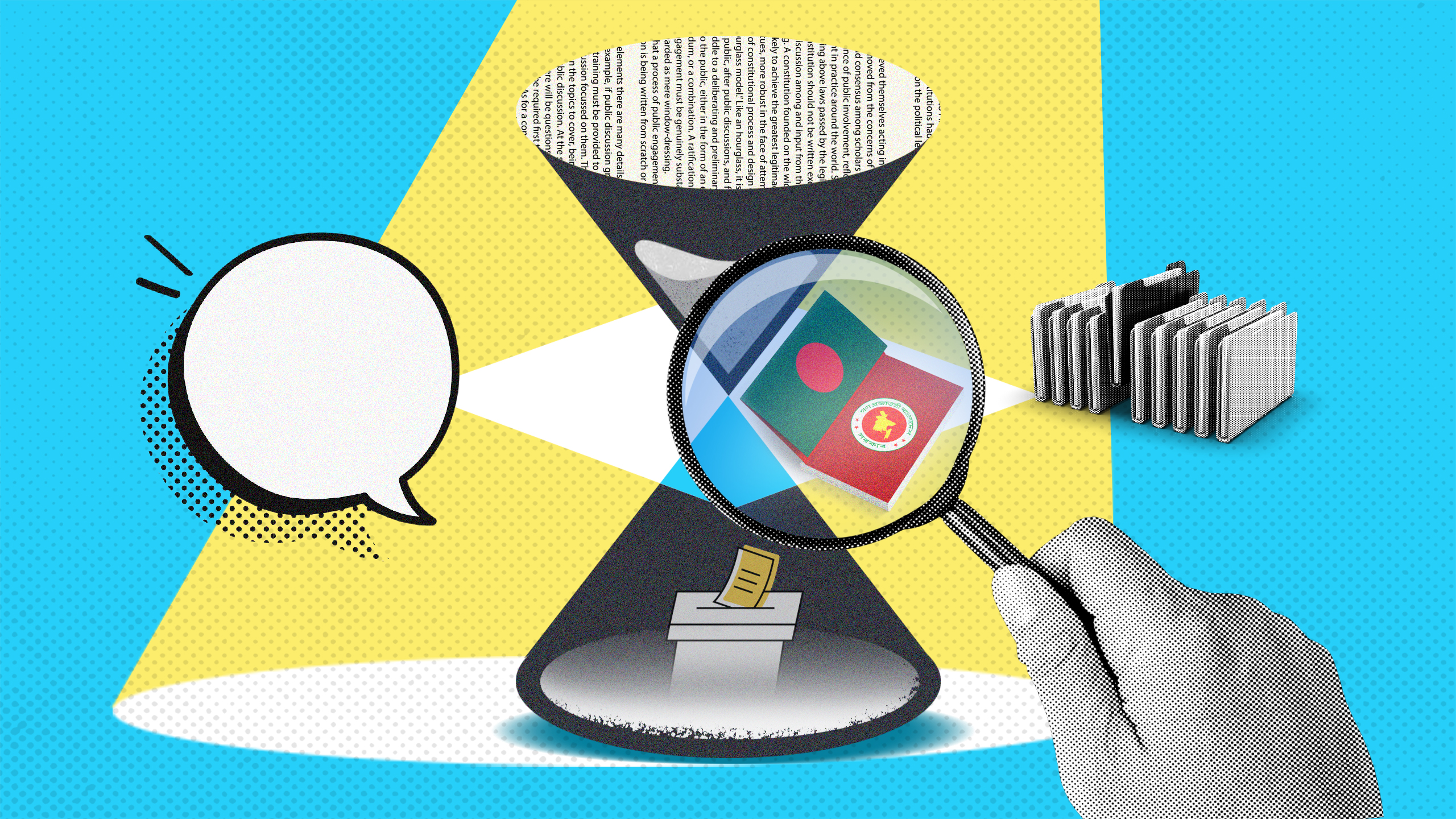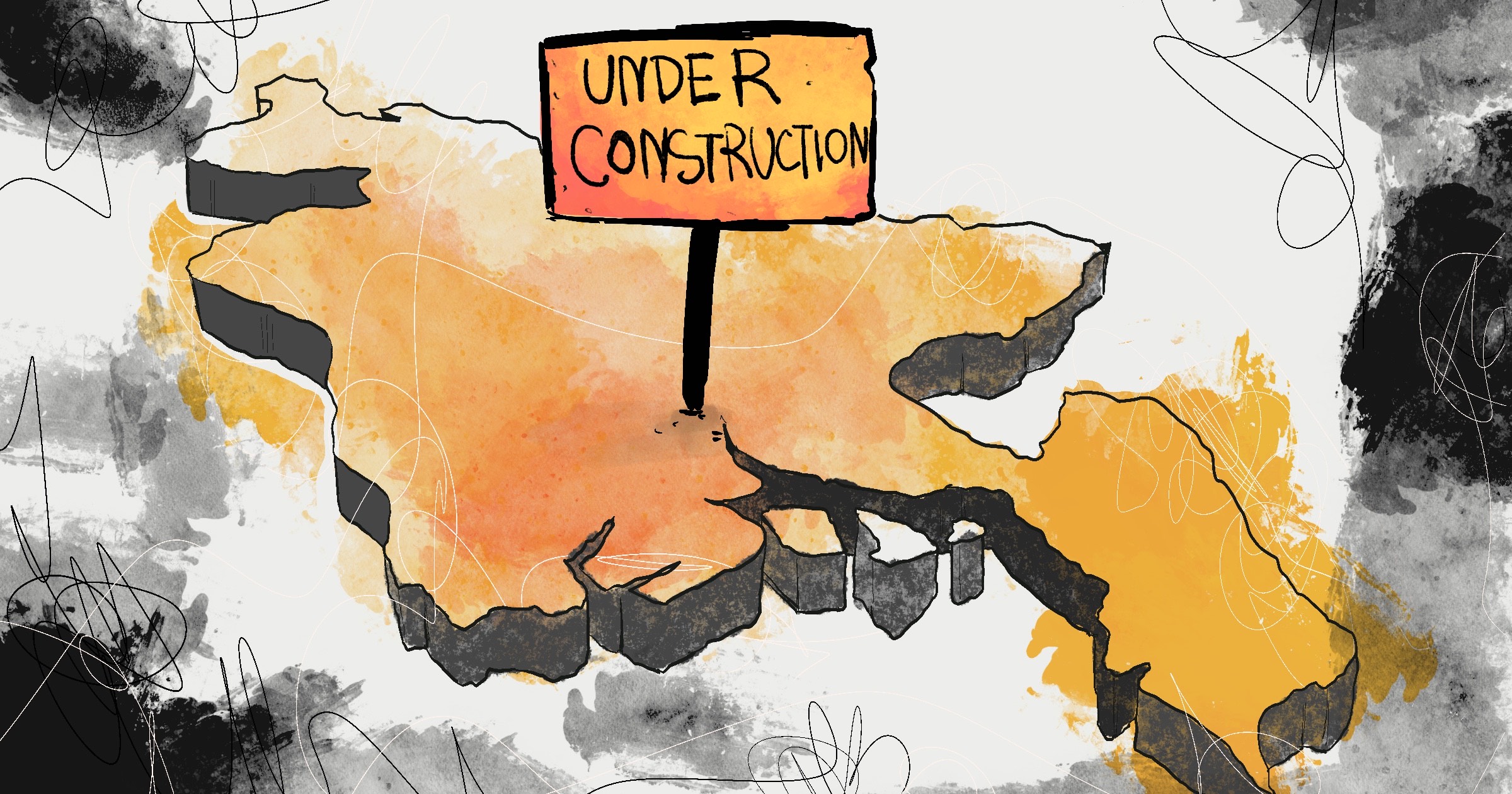Should we consider moving to a presidential system?

In science, insanity is often defined as repeating the same experiment over and over again, but expecting different results every time. The political system of Bangladesh fits this definition: fixated on an ineffective and ancient parliamentary structure, trying different variations without addressing its fundamental flaws. After decades of dysfunction, it is clear that the problem lies not just with the politicians, but with the system itself. A move towards a modern presidential system could offer the country the leadership and governance it urgently needs to ensure sustainable development, and break the political death spiral it has been enduring since independence.
Bangladesh's political landscape has long been dominated by two dynastic factions—the Awami League and the BNP—who remain focused on preserving their legacies rather than addressing the needs of the people. Politics has become the medium to enshrine founders as near-demigods, sidelining new leaders with fresh ideas. As if the country is being driven while looking at the rearview mirrors of an automobile. The current parliamentary system locks out new talent as any new challenger must field 300 parliamentary candidates and win a majority to gain power. This structural barrier ensures the perpetuation of the status quo. There is nothing wrong with a leader who has a political legacy, but they must not be afraid to be directly chosen by the majority of the citizens in a country.
Furthermore, in the parliamentary system, parliamentarians assume ministerial roles, creating a conflict of interest where those who write the laws also enforce them. This system fosters corruption and political patronage, weakening public trust.
Colonial-era assumptions once held that local citizens lacked the education and capacity to collectively choose a national leader, justifying indirect governance structures. Today, those assumptions are no longer valid. Bangladesh's literacy rate stands at over 76 percent for both men and women, and access to internet-enabled devices has democratised knowledge. Citizens now have access to information better than ever before, and are capable of evaluating leaders based on policies and performance. A presidential system, where people directly elect the executive, would align with this reality—empowering voters to select leaders based on competence and accountability.
We can also draw lessons from France's transition in 1958 from a parliamentary to a semi-presidential system under Charles de Gaulle, which resolved political instability and empowered the executive branch to govern effectively. Similarly, Bangladesh needs a governance structure that enables stable leadership while retaining democratic checks and balances.
A presidential system would allow any individual, irrespective of party affiliation, to run directly for the highest office, breaking the monopoly of legacy politics and creating space for new leadership and innovation. It would introduce competition for the nation's top job. It would also separate more effectively the legislative and executive branches, ensuring that parliament focuses on lawmaking and oversight, while the president governs utilising specialised technocrats. This structure would promote meritocracy, accountability and transparency, strengthening governance and fostering real development.
Bangladesh has experimented with both parliamentary and presidential systems in search of a workable governance model. In 1972, following independence, the country adopted a parliamentary system modelled on the British framework. However, the coalition politics it encouraged soon led to instability. In 1975, Sheikh Mujibur Rahman transitioned the nation to a presidential system in an effort to consolidate executive power and stabilise governance. However, opposition to this shift—especially because it was based on a one-party system—led to dissatisfaction. And in 1991, after years of military rule, Bangladesh returned to parliamentary democracy through a referendum. While this was a step towards democracy, it failed to eliminate political infighting and the dominance of dynastic factions.
Even today, the same challenges persist, making it clear that the parliamentary system has reached its limits. A return to a presidential model offers a path towards stability, accountability and progress.
We can also draw lessons from France's transition in 1958 from a parliamentary to a semi-presidential system under Charles de Gaulle, which resolved political instability and empowered the executive branch to govern effectively. Similarly, Bangladesh needs a governance structure that enables stable leadership while retaining democratic checks and balances.
The interim government has a rare opportunity to reshape the governance model either through judicial intervention or a national referendum. However, a referendum would give the citizens ownership of the new system and provide legitimacy to the transition.
To safeguard democracy, any future amendments to election laws or the constitution should also require public approval through referendums. This would prevent politically motivated changes and ensure that constitutional reforms remain accountable to the people. Additionally, it should be made into law that no elected position of political significance can be served for more than two consecutive terms to limit concentration of power.
The recent student-led movement has revealed that beyond the traditional political sphere dominated by the Awami League and BNP, a new force is emerging—one that can reshape the direction of politics in the country. This movement demonstrated that politics in Bangladesh is no longer exclusively controlled by established parties. An informal alliance formed between students and the country's migrant workers during the uprising has become a powerful force, capable of challenging the status quo and shaping the future of the country.
With the momentum generated by the students and migrant workers, the time for a sea change in Bangladesh is now. The country is being led by Dr Muhammad Yunus, a visionary economist who has empowered millions of women entrepreneurs through microfinance. Yunus's leadership reflects a profound shift towards meritocracy, transparency, and inclusive growth—values that align perfectly with the goals of the recent uprising. More importantly, Yunus has global reach and support to carry out real political and economic reforms needed for Bangladesh to thrive as an economic superpower.
Javed Hosein is an entrepreneur in the energy sector of Bangladesh.
Views expressed in this article are the author's own.
Follow The Daily Star Opinion on Facebook for the latest opinions, commentaries and analyses by experts and professionals. To contribute your article or letter to The Daily Star Opinion, see our guidelines for submission.



 For all latest news, follow The Daily Star's Google News channel.
For all latest news, follow The Daily Star's Google News channel. 


Comments